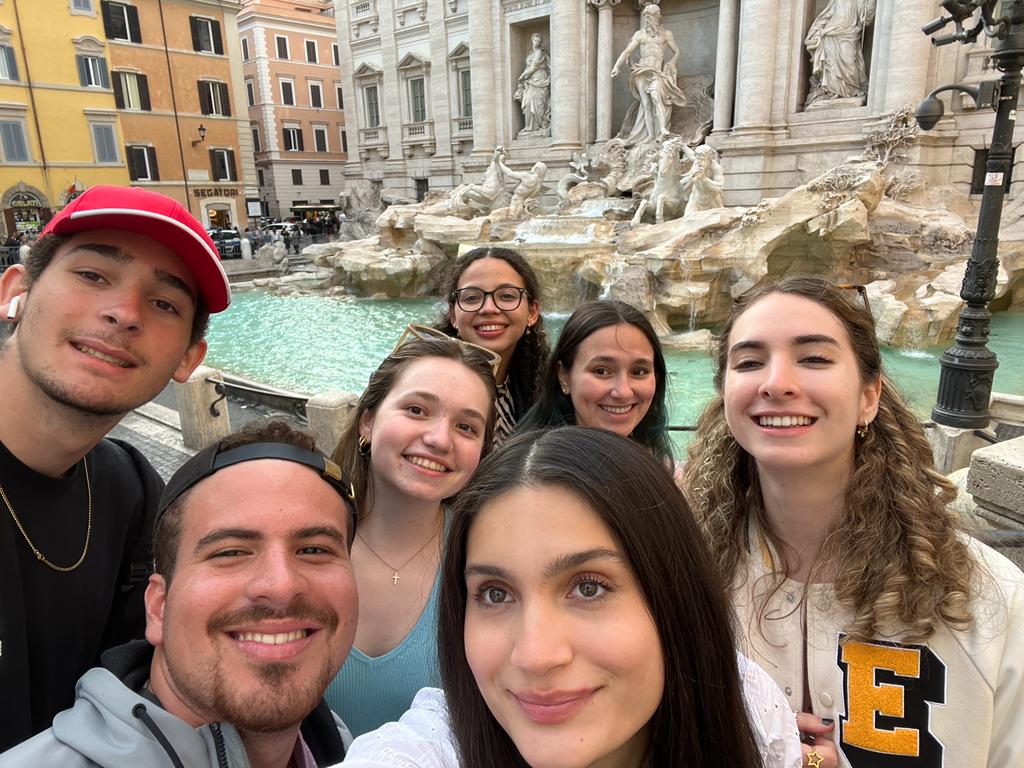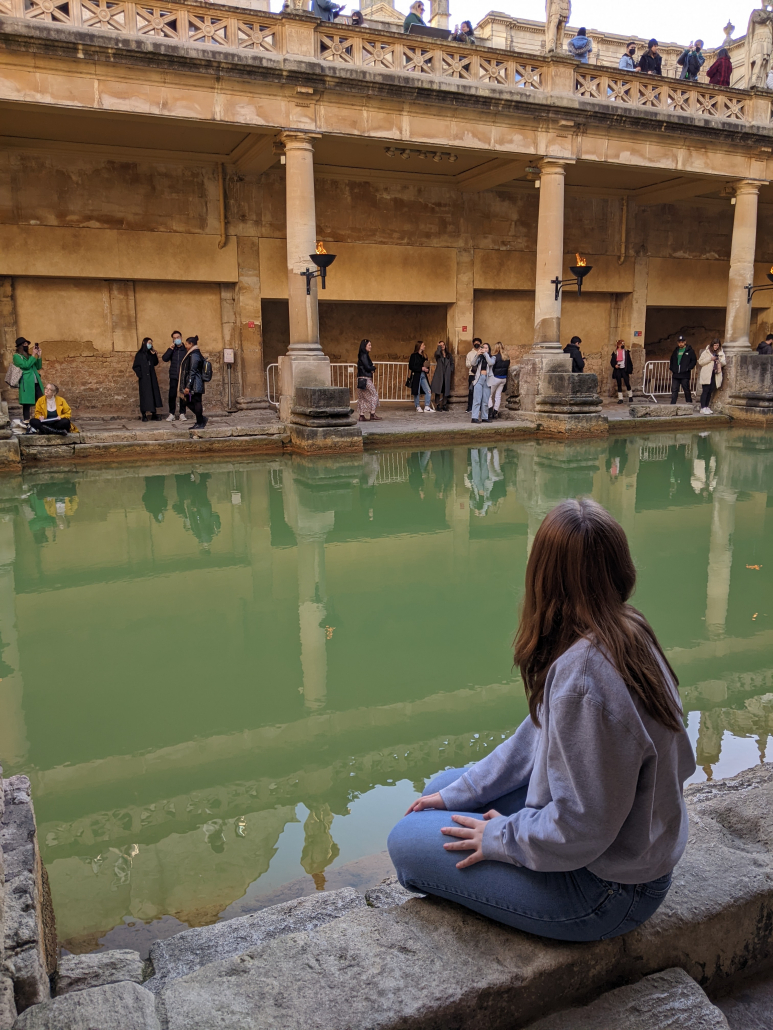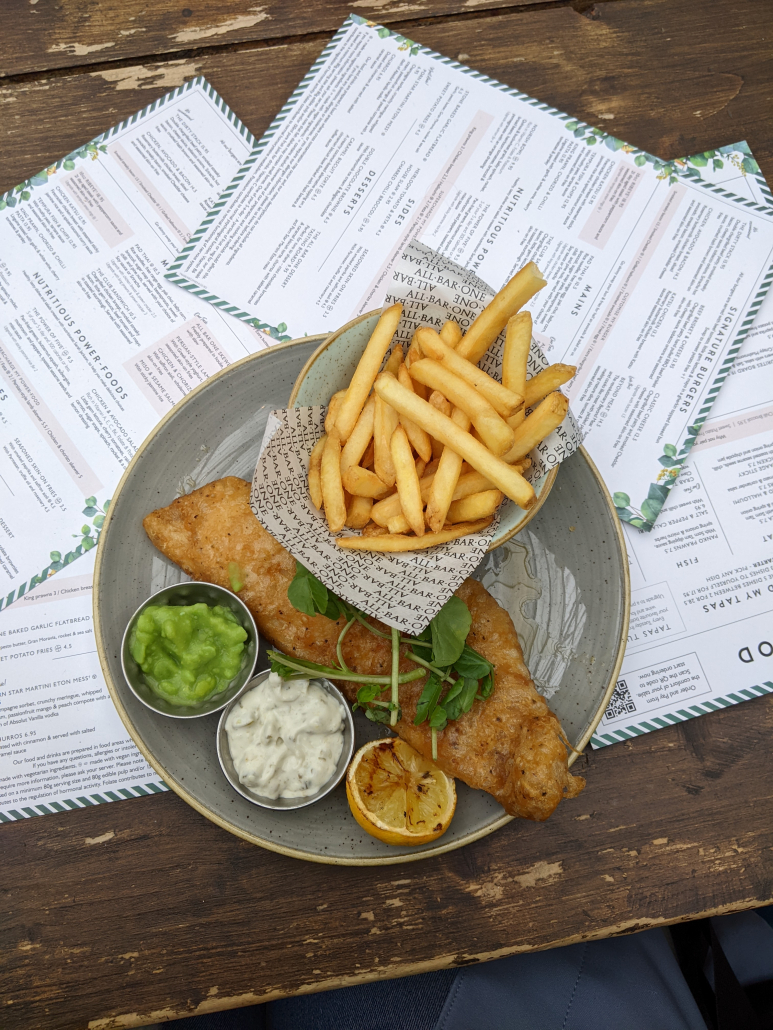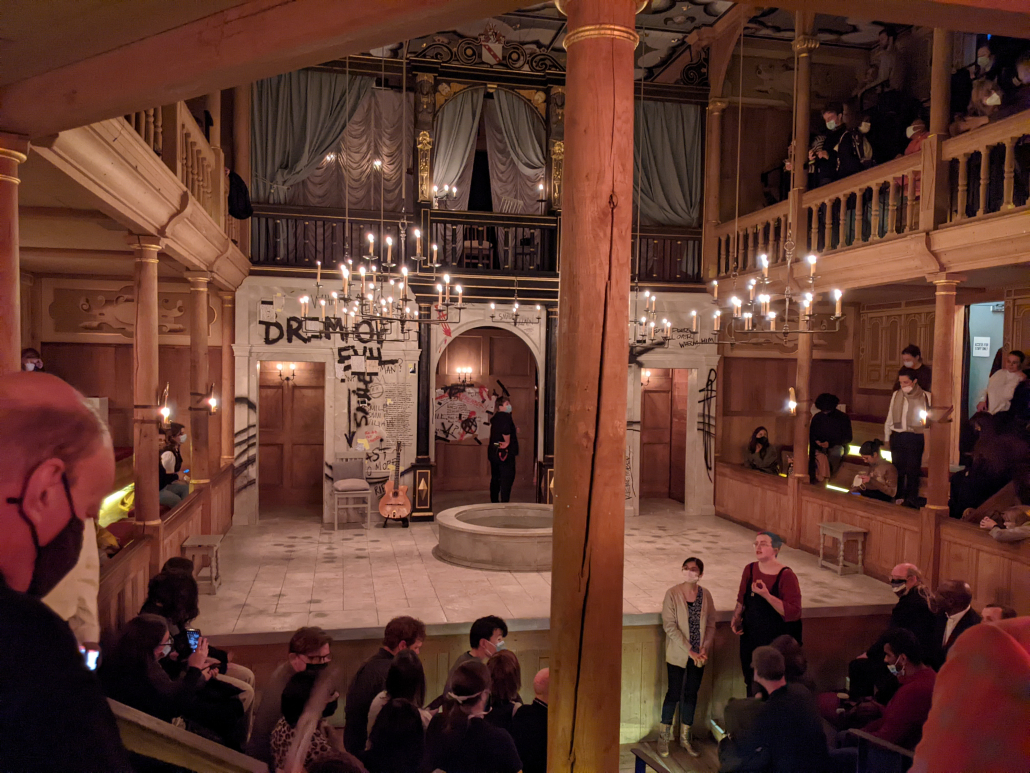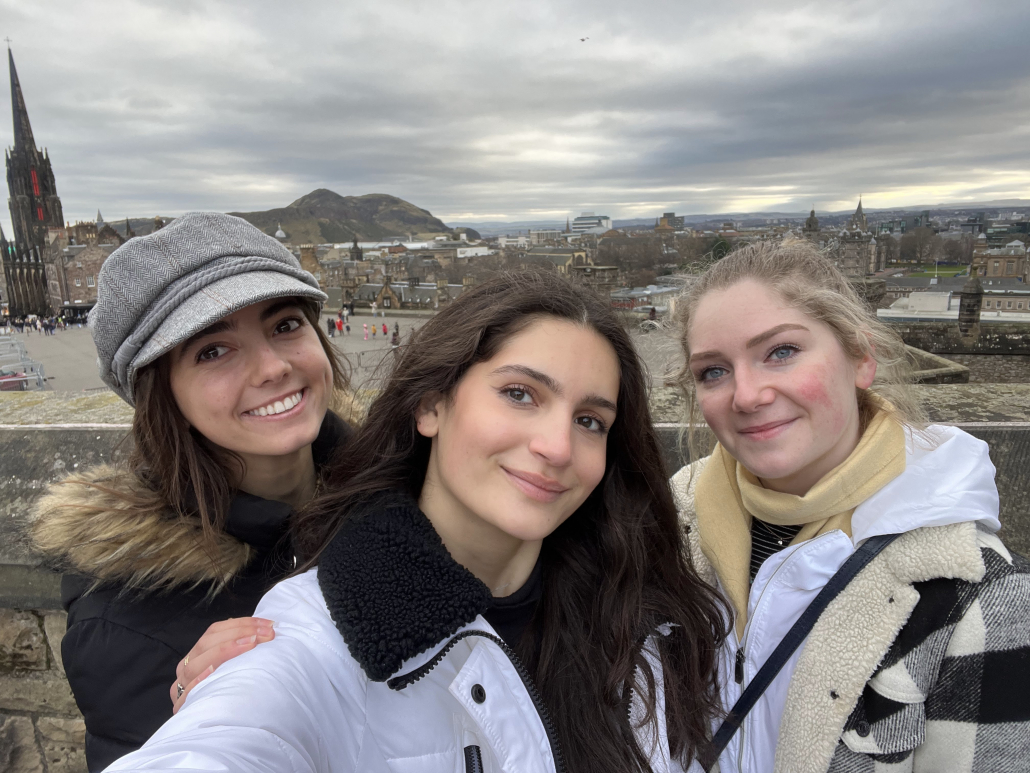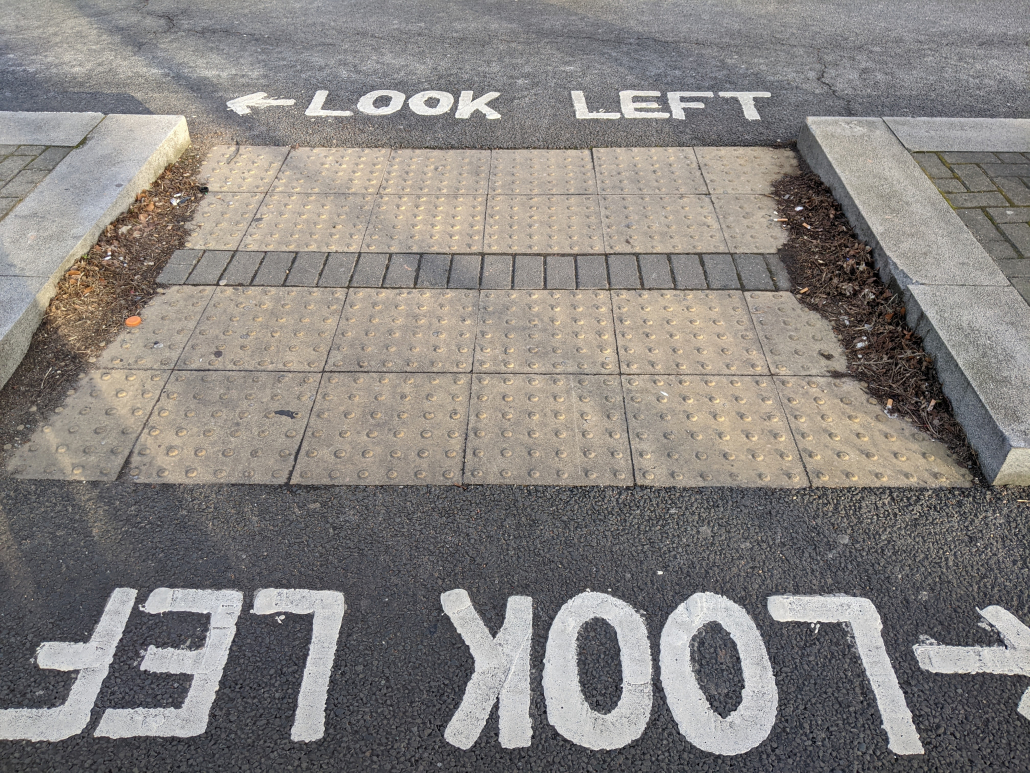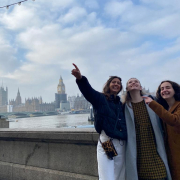Almost Home
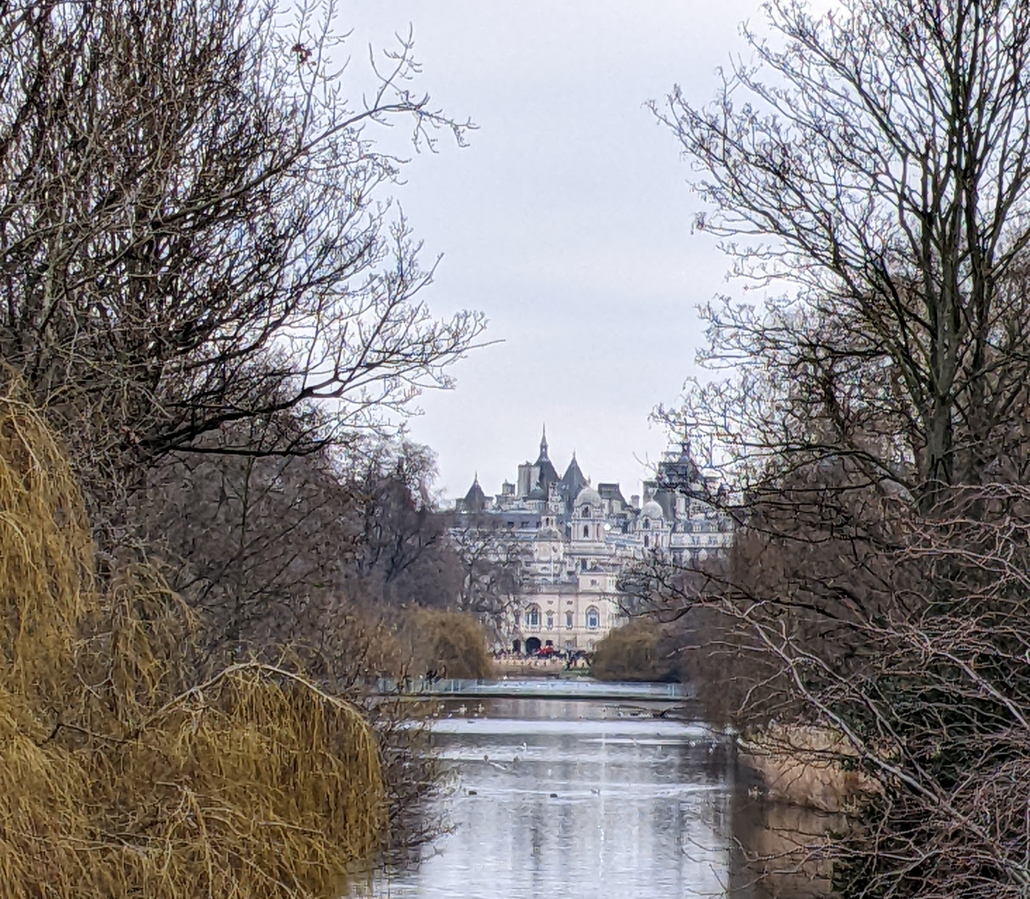
My study abroad journey is almost over, and I don’t want it to end. I have learned so much and had some of the most fun I have ever had. Leaving the friends I have met is going to be hard. I am grateful for everything I have done and learned, and I know I will have these memories for the rest of my life.
I am the proudest of how much my people skills have improved. I have never been the most outgoing or social person, and I was really nervous to put myself in a situation where I didn’t know anyone. In the past 4 months, I have made so many genuine connections with people. Some I only had one conversation with and some will be my friends for life. I think that I am a lot better at carrying on a conversation and connecting with people than I was when I got here. In ministry, you need to be able to talk to all kinds of people, so I am very glad I had this experience.
Being abroad has given me so many opportunities that I never would have gotten otherwise. One of these advantages is that the University of Roehampton is a lot bigger than MLC. There are many more clubs and activities on campus because of this. If I could go back and do my semester abroad over again, I think that I would try to participate in these events on campus more. I did get involved in a few things, but I was so busy doing things out in the city most of the time that I neglected what was right in front of me. On-campus activities are a great way to meet people. Plus, they are free!
Although I wasn’t involved on campus as much as I would have liked, I did plenty of things. London is a huge city with so much to offer, and I made it my mission to never be bored. My flatmates and I explored our corner of the city, trying new restaurants and going into every store. We went to museums and took dance classes. We were motivated to try new things because we were in a new city. I recently realized that I haven’t explored nearly this much in New Ulm. There are so many restaurants I have never tried and places I have never been to. It might not be as glamorous as London, but I want to make it my new mission to never be bored back home either. Even if it just means going for a walk in a park with my friends, I want to always be appreciating the world around me.
Even though I love London, studying abroad has made me much more grateful for my home. By my home, I mean the USA, Connecticut/Minnesota, my church, my school, and my family. I gained a lot of pride in my home while abroad. There are some things you just can’t get anywhere else. I am grateful for enthusiastic American customer service, Kraft mac and cheese, and Target. After spending so much time outside of the country, I didn’t get less American, but more American, because I learned what that really means.
Looking back, I can see God’s hand working in so many ways. He knew what I needed to get through the hard times and He put me in the right places with the right people. When I came to London, I didn’t know a single person here, and I had no idea who I would be living with. The assignments were completely random. God’s plan was so evident in the fact that one of my flatmates is also a Christian. I was able to relate to her in a way that I couldn’t with others, and she helped me through some tough moments. Leaving the bubble of MLC was scary because I wasn’t just leaving my friends, I was leaving my Christian community. Having a Christian friend here who I can talk to made a huge difference to me.
I also think that it was part of God’s plan for me to meet Karla. I didn’t expect to practice my Spanish or become closer to my culture while in England, but it all worked out. Some of the best benefits I have gotten from being in London were ones that I never expected or planned.
I have two pieces of advice for future study abroad students. The first is practical: save as much money as possible before you go and track your spending carefully. You won’t be able to work while you are abroad and the last thing you want is to be overly stressed about money. Studying abroad is expensive, but it is attainable. You just need to identify in which areas you want to spend your money. The second piece of advice I have is to constantly try new things. Studying abroad in its entirety will be a new experience, so I would encourage everyone to make the most of it and keep the momentum going. You will only have this experience once and after you push yourself out of your comfort zone, it will feel so rewarding. If you play it safe the whole time, you will probably still have a good experience, but you won’t grow nearly as much or have as much fun.
Even though this is my final blog, my journey is actually far from over. I still have a month left in London, and then it’s off to Buenos Aires for an entirely new culture (and language). Even after I get home, I will continue to grow as a result of this experience. I would tell anyone getting ready to study abroad not to expect it to change their life. It’s best not to go in with that mentality because it creates unrealistic expectations. That being said, it absolutely will change your life.

